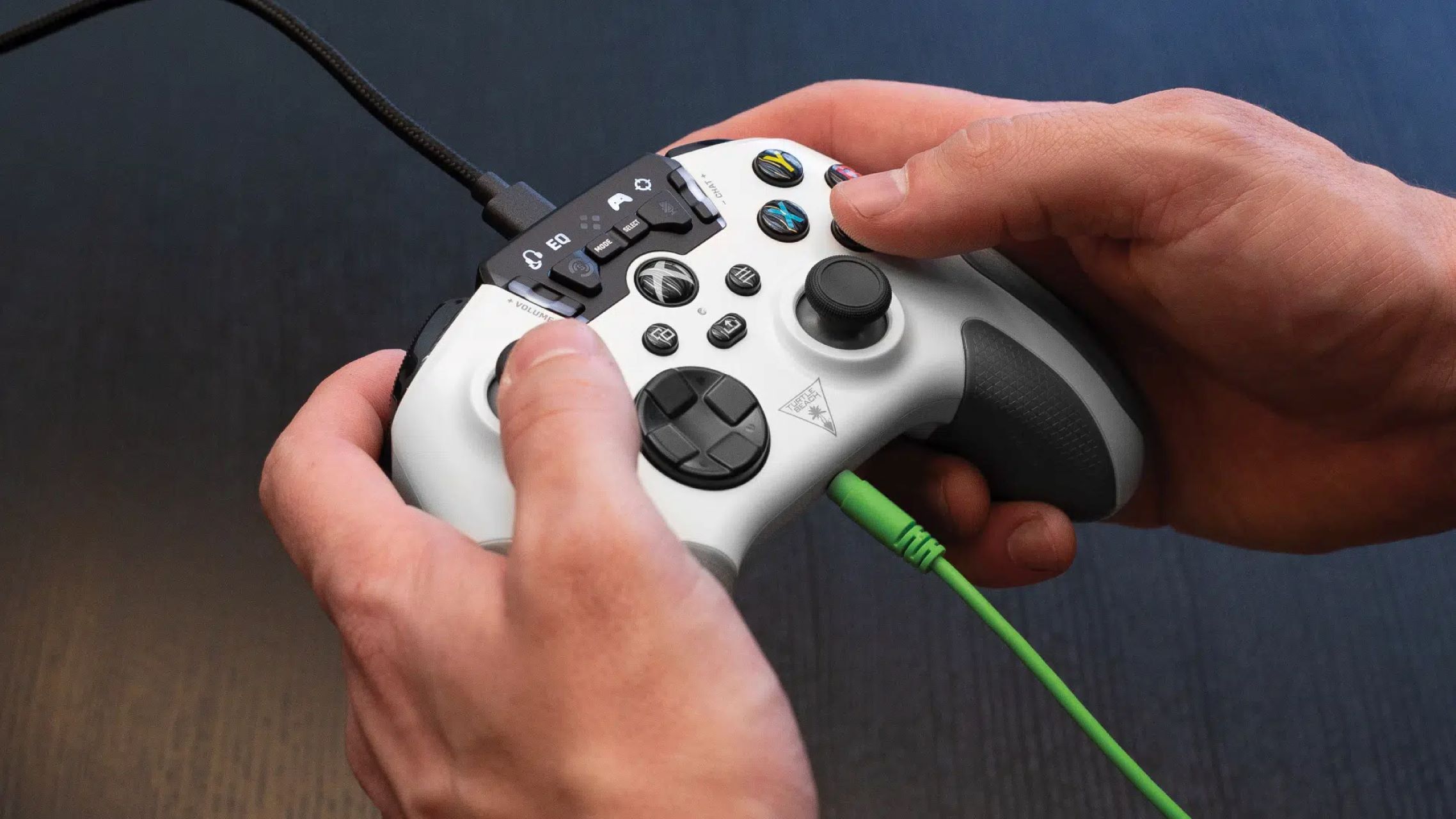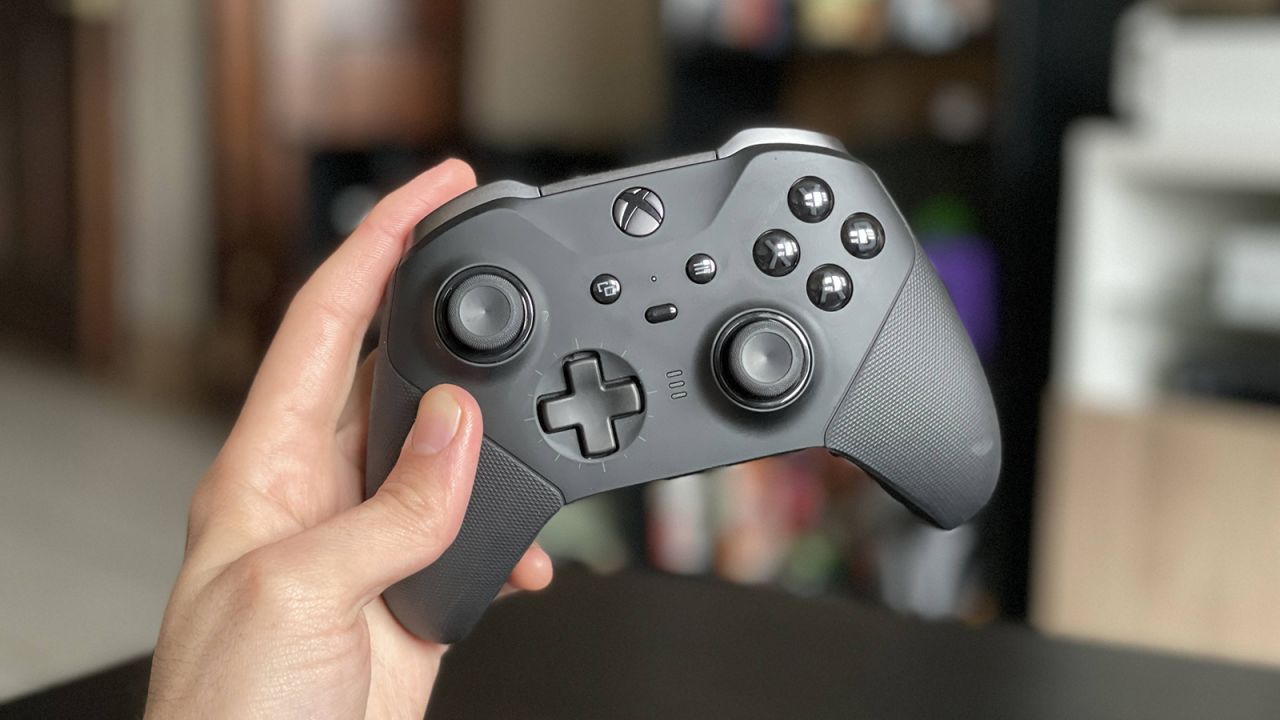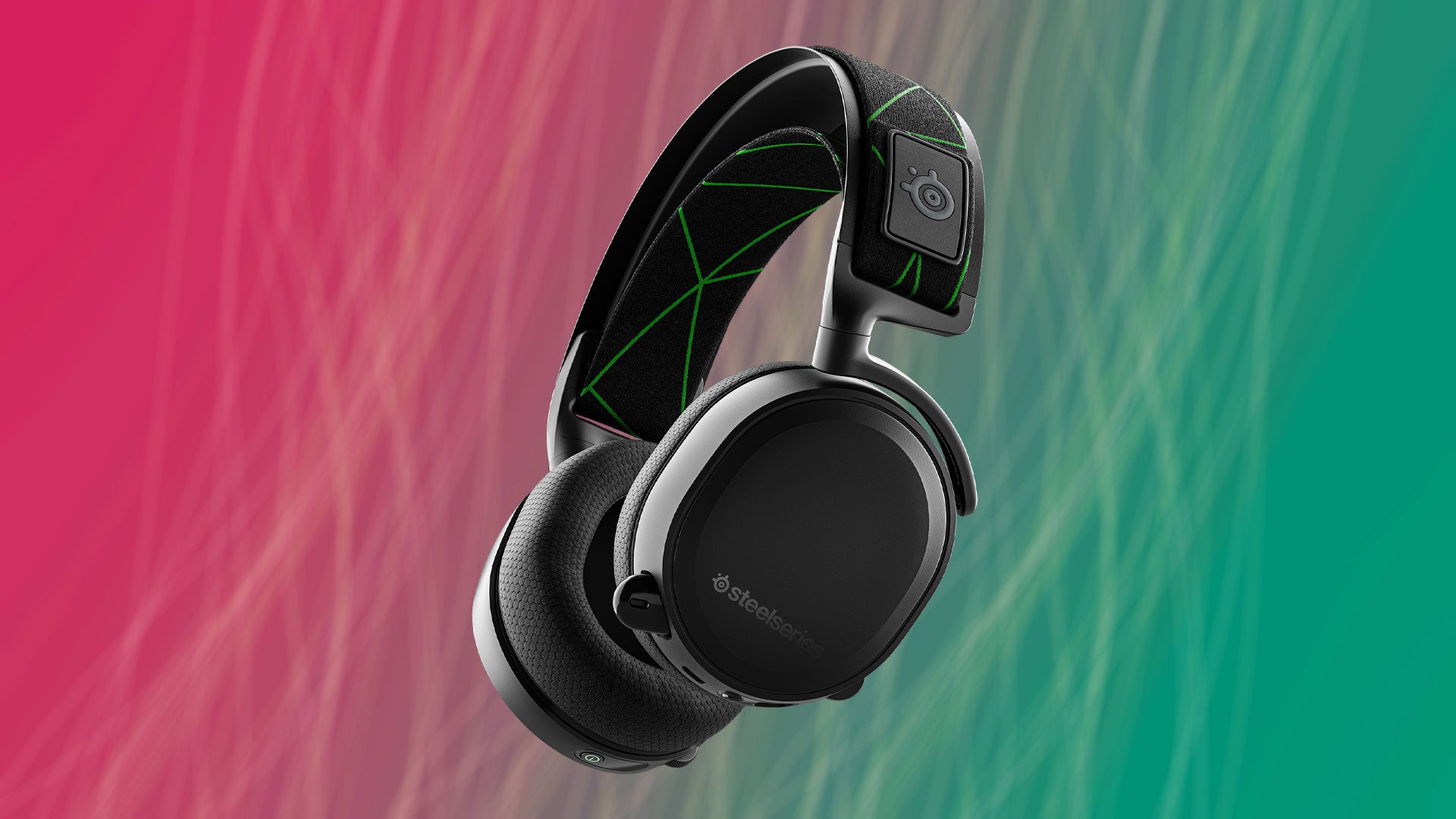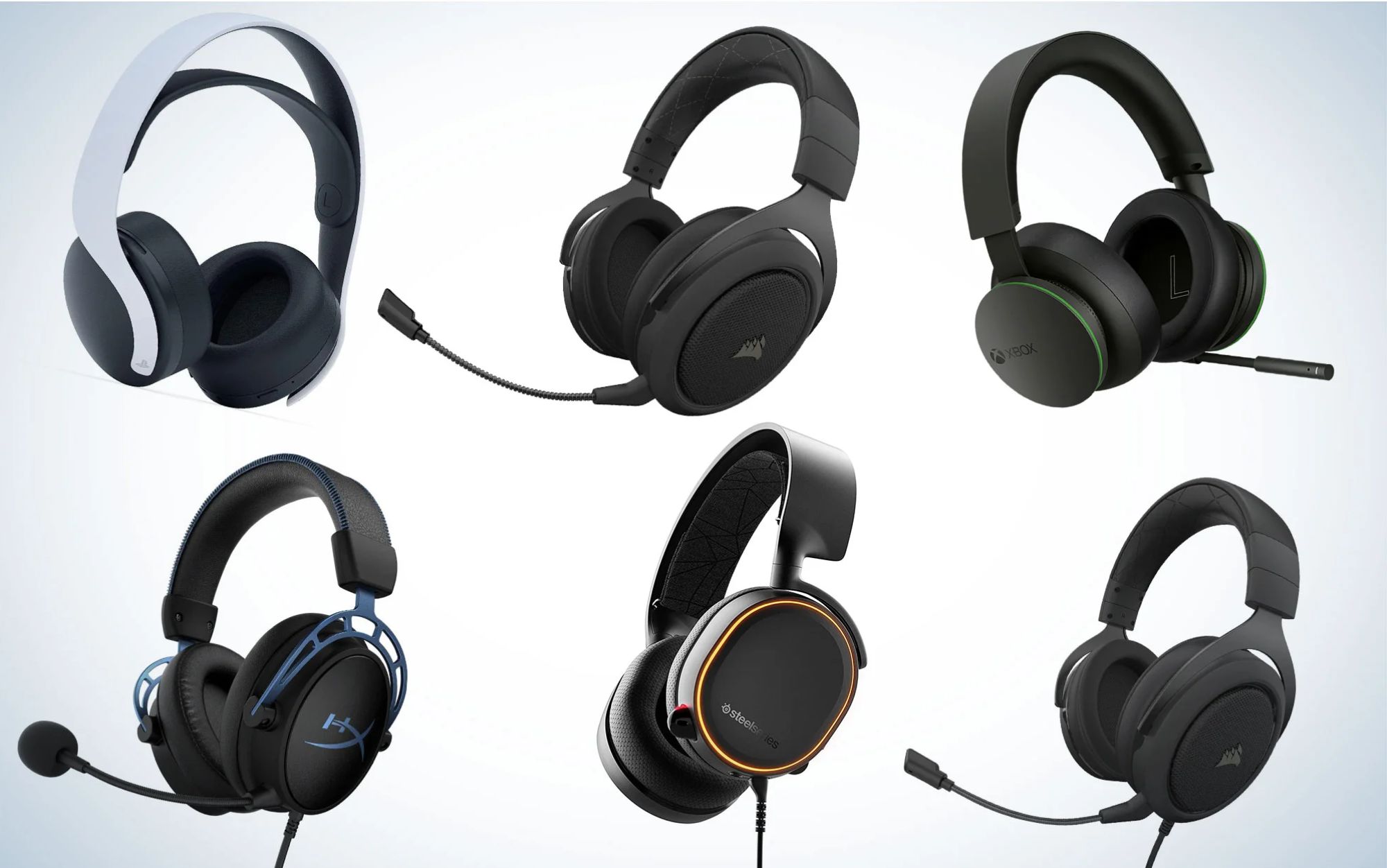Introduction
When it comes to gaming on a PC, having the right controller can make all the difference in your gaming experience. While keyboard and mouse are the traditional input devices for PC gaming, many gamers prefer the comfort and familiarity of a game controller. However, choosing the right game controller for your PC can be a daunting task, given the plethora of options available in the market. From wired to wireless, compatibility to customization, and durability to price, there are numerous factors to consider when selecting a game controller for PC gaming.
Whether you’re a casual gamer or a hardcore enthusiast, finding a good game controller that suits your gaming style and preferences is crucial. In this guide, we’ll explore the key factors to consider when choosing a game controller for PC gaming. From the debate between wired and wireless controllers to the importance of compatibility, button layout, durability, customization options, and price, we’ll delve into the essential aspects that can help you make an informed decision when selecting the perfect game controller for your PC gaming setup.
Wired vs Wireless Controllers
One of the primary considerations when choosing a game controller for PC gaming is whether to opt for a wired or wireless controller. Each type has its own set of advantages and drawbacks that can significantly impact your gaming experience.
Wired Controllers:
- Reliability: Wired controllers are known for their reliable connection, as they are not susceptible to interference or latency issues that can sometimes affect wireless controllers.
- Minimal Input Lag: With a direct physical connection to the PC, wired controllers typically exhibit minimal input lag, which is crucial for fast-paced and competitive gaming.
- No Battery Concerns: Unlike wireless controllers, wired ones do not require charging or battery replacements, ensuring uninterrupted gameplay.
- Lower Cost: Wired controllers are often more budget-friendly compared to their wireless counterparts, making them an economical choice for many gamers.
Wireless Controllers:
- Freedom of Movement: Wireless controllers offer greater freedom of movement, allowing gamers to sit back and enjoy their gaming sessions without being tethered to the PC.
- Clean Setup: Without the need for cables, wireless controllers contribute to a clutter-free gaming environment and enable hassle-free storage when not in use.
- Flexibility: Wireless controllers provide the flexibility to game from a distance, which can be advantageous for certain gaming setups or living room gaming scenarios.
- Convenience: The absence of cables eliminates the risk of tripping over wires, offering a more convenient and safer gaming experience.
Ultimately, the decision between a wired and wireless controller boils down to personal preference, gaming environment, and specific gaming requirements. While some gamers prioritize the reliability and affordability of wired controllers, others value the freedom and convenience offered by wireless options. Understanding your gaming needs and preferences is crucial in determining which type of controller best suits your PC gaming setup.
Compatibility with PC
When selecting a game controller for PC gaming, ensuring compatibility with your gaming rig is paramount. Not all game controllers are universally compatible with PCs, and factors such as operating system support, driver availability, and connectivity options play a crucial role in determining whether a controller is suitable for use with a PC.
Operating System Support:
Before purchasing a game controller, it’s essential to verify its compatibility with your PC’s operating system. While many controllers are designed to work seamlessly with Windows-based systems, support for macOS and Linux may vary. Checking the manufacturer’s specifications and user reviews can provide valuable insights into a controller’s compatibility with different operating systems.
Driver Availability:
Some game controllers require specific drivers to function optimally with a PC. It’s important to ascertain whether the controller you’re considering has readily available drivers for your operating system. Controllers with robust driver support often offer advanced customization options and ensure smooth integration with PC games.
Connectivity Options:
Controllers may utilize different connectivity options, including USB, Bluetooth, and proprietary wireless adapters. Assessing your PC’s available connectivity ports and wireless capabilities is essential in choosing a controller that can be seamlessly integrated into your gaming setup. Additionally, considering the number of available USB ports and the range of wireless connectivity can influence your decision when selecting a game controller.
Controller Mapping and Customization:
For PC gaming, having the ability to map controller inputs and customize button configurations is highly advantageous. Controllers with robust customization software or built-in mapping functionality can enhance the gaming experience by allowing users to tailor the controller to their preferences and optimize compatibility with a wide range of PC games.
By prioritizing compatibility considerations, such as operating system support, driver availability, connectivity options, and customization features, PC gamers can confidently select a game controller that seamlessly integrates with their gaming environment and enhances their overall gaming experience.
Button Layout and Design
When evaluating game controllers for PC gaming, the button layout and overall design play a pivotal role in determining the controller’s suitability for different gaming genres and individual preferences. The arrangement of buttons, analog sticks, triggers, and additional features significantly impacts the controller’s ergonomics and usability during extended gaming sessions.
Ergonomics and Comfort:
The ergonomics of a game controller can greatly influence the gaming experience. A well-designed controller should offer comfortable grip, intuitive button placement, and ergonomic contours that minimize hand fatigue and enhance overall control. Evaluating the comfort and feel of a controller in hand is essential, especially for gamers who engage in lengthy gaming sessions.
Button Placement and Accessibility:
The placement and accessibility of buttons and triggers can affect the controller’s usability across various gaming genres. Controllers with well-positioned buttons and triggers enable seamless access to essential controls, promoting fluid gameplay and responsive input. Additionally, the accessibility of auxiliary buttons, such as programmable paddles or additional triggers, can enhance the controller’s versatility for different gaming scenarios.
Analog Stick Precision:
For games that rely on precise analog stick movements, the sensitivity and responsiveness of the analog sticks are crucial. Controllers with high-quality analog sticks that offer precise control and minimal dead zones can significantly impact gameplay, particularly in genres such as first-person shooters, action-adventure games, and racing simulations.
Design Customization:
Some game controllers offer design customization options, allowing users to swap out analog sticks, customize the grip texture, or adjust trigger sensitivity. Customizable design elements empower gamers to tailor the controller to their preferences, ensuring a personalized and optimized gaming experience that aligns with their specific gameplay requirements.
By carefully evaluating the button layout, ergonomics, analog stick precision, and customization options, PC gamers can select a game controller that not only complements their gaming style but also provides the comfort, responsiveness, and versatility needed to excel across a diverse range of PC games.
Durability and Build Quality
When investing in a game controller for PC gaming, assessing the durability and build quality is essential to ensure longevity, reliability, and sustained performance throughout extensive gaming sessions. A robust and well-constructed controller can withstand the rigors of intense gameplay and provide a consistent gaming experience over time.
Material and Construction:
The materials used in the construction of a game controller significantly influence its durability and resilience. Controllers crafted from high-quality plastics, reinforced polymers, and durable components tend to withstand wear and tear, accidental drops, and repetitive usage, ensuring long-term functionality and structural integrity.
Button and Trigger Reliability:
The reliability of buttons, triggers, and analog sticks is paramount in assessing a controller’s build quality. Well-engineered controllers feature responsive buttons, durable triggers, and robust analog sticks that can endure prolonged use without succumbing to premature wear or diminished responsiveness. Evaluating user reviews and expert assessments can provide valuable insights into the durability of specific controller models.
Cable and Connector Durability:
For wired controllers, the durability of the cable and connector is a critical consideration. Reinforced cables, strain relief mechanisms, and secure connectors contribute to the overall durability of a wired controller, minimizing the risk of cable fraying, connectivity issues, or premature cable failure due to constant bending and movement.
Impact Resistance and Drop Testing:
Controllers designed to withstand accidental drops and impacts offer an added layer of durability. Manufacturers that conduct rigorous drop testing and implement impact-resistant design elements ensure that their controllers can endure unforeseen mishaps, providing peace of mind to gamers who prioritize durability and longevity in their gaming peripherals.
By prioritizing controllers with robust material construction, reliable buttons and triggers, durable cables and connectors, and impact-resistant design features, PC gamers can invest in a game controller that not only enhances their gaming experience but also delivers long-lasting durability and sustained performance, even under demanding gaming conditions.
Customization Options
Customization is a key aspect for many PC gamers when choosing a game controller, as it allows for personalized adjustments to enhance comfort, performance, and overall gaming experience. Controllers with extensive customization options empower gamers to tailor the device to their specific preferences, providing a level of control and versatility that can significantly impact gameplay across diverse genres and gaming scenarios.
Button Mapping and Profile Configuration:
Controllers that offer advanced button mapping and profile configuration software enable users to remap buttons, adjust sensitivity, and create custom profiles tailored to individual games or gaming styles. This level of customization ensures that the controller adapts to the unique requirements of different games, providing a personalized and optimized gaming experience.
Interchangeable Components:
Some high-end controllers feature interchangeable components, such as analog sticks, D-pads, and paddles, allowing users to swap out and customize these elements to suit their preferences. This level of modularity enables gamers to fine-tune the controller’s design and functionality, catering to specific gameplay needs and ergonomic preferences.
Trigger and Button Adjustability:
Controllers with adjustable trigger and button sensitivity provide a high degree of customization, allowing users to fine-tune the actuation force and travel distance of triggers and buttons. This level of precision customization can be particularly beneficial for competitive gaming, where minute adjustments can make a significant difference in performance.
RGB Lighting and Aesthetics:
For gamers who value aesthetics and personalization, controllers with customizable RGB lighting and aesthetic enhancements offer a visually engaging and customizable gaming accessory. The ability to customize lighting effects, color schemes, and overall aesthetics adds a layer of personalization to the gaming setup, creating an immersive and personalized gaming environment.
By prioritizing controllers with extensive customization options, including button mapping, interchangeable components, trigger and button adjustability, and aesthetic enhancements, PC gamers can elevate their gaming experience to new heights, enjoying a level of personalization and control that aligns with their unique gaming preferences and play styles.
Price and Value
When considering a game controller for PC gaming, the price and overall value proposition are crucial factors that influence the purchasing decision. Balancing the cost of the controller with its features, build quality, and customization options is essential in determining the overall value it brings to the gaming experience. By evaluating the price-to-performance ratio and long-term benefits, gamers can make informed decisions that align with their budget and gaming requirements.
Entry-Level Controllers:
Entry-level controllers often offer basic functionality and essential features at a budget-friendly price point. While these controllers may lack advanced customization options and premium build materials, they provide a cost-effective entry into PC gaming with controller support, making them suitable for casual gamers and those on a tight budget.
Mid-Range Controllers:
Mid-range controllers strike a balance between price and features, offering a combination of durability, customization options, and ergonomic design at a competitive price. These controllers cater to a broader audience, providing a compelling value proposition for gamers seeking enhanced performance and versatility without breaking the bank.
High-End Controllers:
High-end controllers command a premium price but deliver an array of advanced features, including extensive customization, premium materials, and precision engineering. While the initial investment may be higher, the long-term value and performance benefits of these controllers can justify the price for serious gamers, competitive enthusiasts, and those seeking top-tier build quality and customization options.
Long-Term Value Considerations:
Beyond the initial price, assessing the long-term value of a game controller is crucial. Factors such as durability, warranty coverage, ongoing software support, and compatibility with future gaming platforms contribute to the overall value proposition. Investing in a controller that offers sustained performance, longevity, and compatibility with evolving gaming technologies can provide enduring value over time.
By carefully evaluating the price, features, long-term value, and alignment with personal gaming preferences, PC gamers can identify a game controller that offers an optimal balance of affordability, performance, and value, enriching their gaming experience without compromising on quality or functionality.
Conclusion
Choosing the right game controller for PC gaming is a decision that hinges on a myriad of factors, each influencing the overall gaming experience. From the debate between wired and wireless controllers to the importance of compatibility, button layout, durability, customization options, and price, the considerations are multifaceted and deeply impactful.
Ultimately, the ideal game controller for PC gaming is one that seamlessly integrates with the gaming environment, aligns with personal preferences, and enhances gameplay across diverse genres. Whether it’s the reliability of a wired controller, the freedom of movement provided by a wireless option, or the extensive customization features that empower gamers to tailor the controller to their liking, the perfect controller is a combination of functionality, comfort, and value.
As PC gaming continues to evolve, the importance of selecting a game controller that offers durability, compatibility with various gaming platforms, and a compelling price-to-performance ratio cannot be overstated. Gamers are presented with a wealth of options, ranging from entry-level controllers that provide essential functionality to high-end models that boast advanced features and premium build quality.
By carefully evaluating the nuances of each controller, considering personal gaming preferences, and prioritizing factors such as ergonomics, customization, and long-term value, PC gamers can make informed decisions that elevate their gaming experience and unlock new levels of immersion and enjoyment.
Ultimately, the perfect game controller for PC gaming is a reflection of the individual gamer’s needs, preferences, and gaming aspirations. With the right controller at hand, PC gamers can embark on thrilling gaming adventures, compete in intense multiplayer battles, and immerse themselves in captivating virtual worlds with unparalleled control and precision.

























